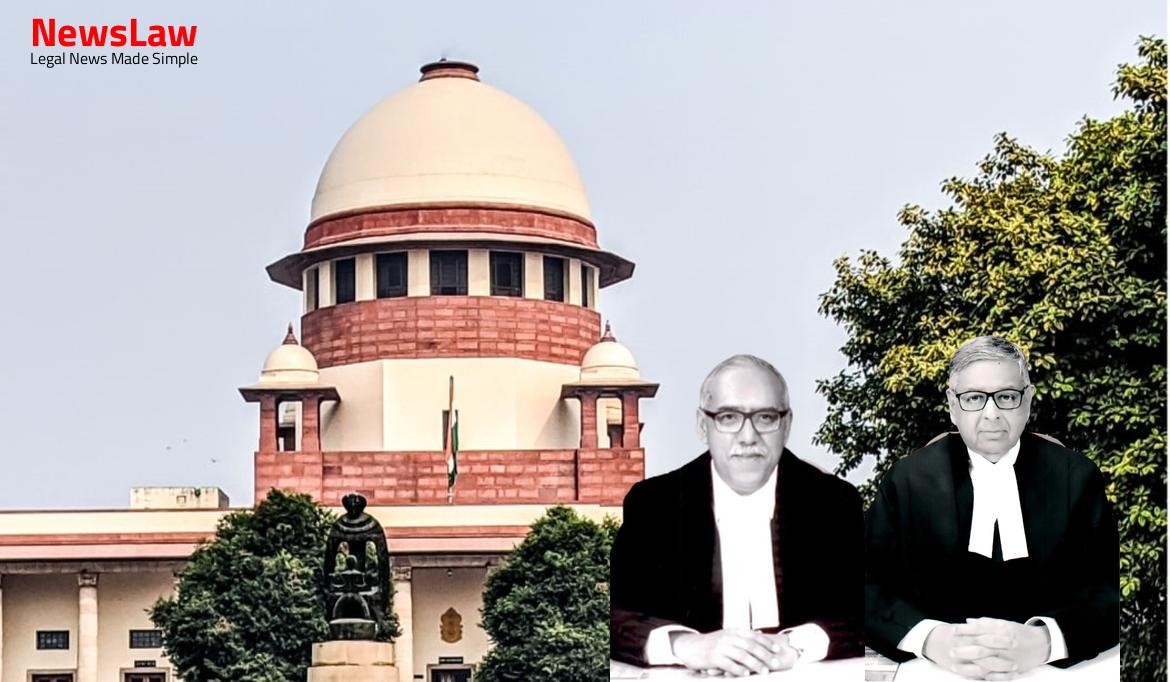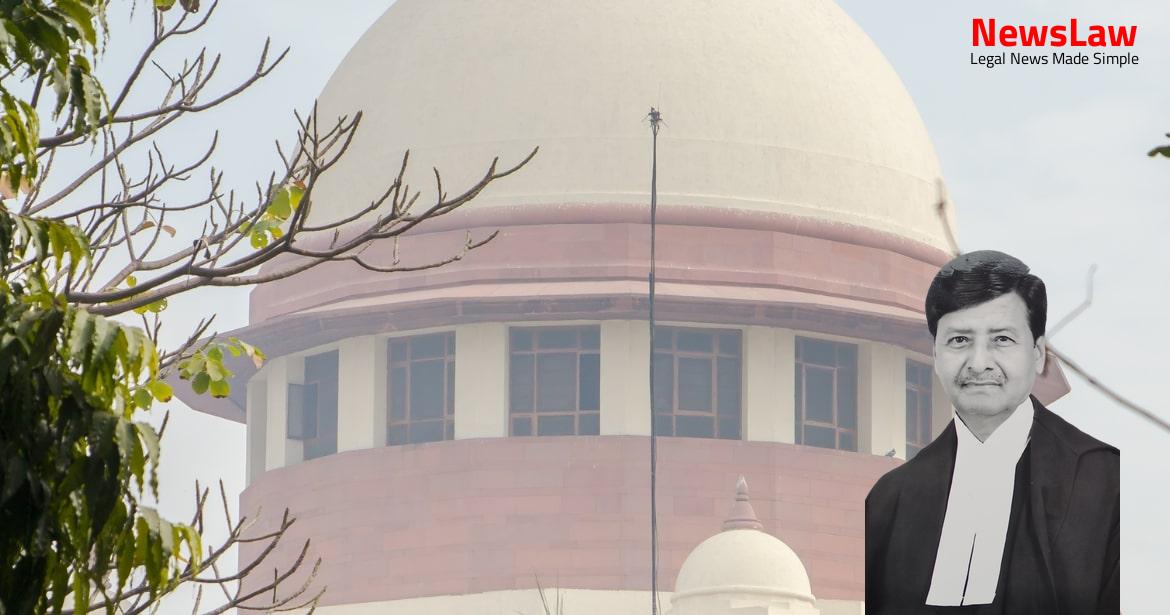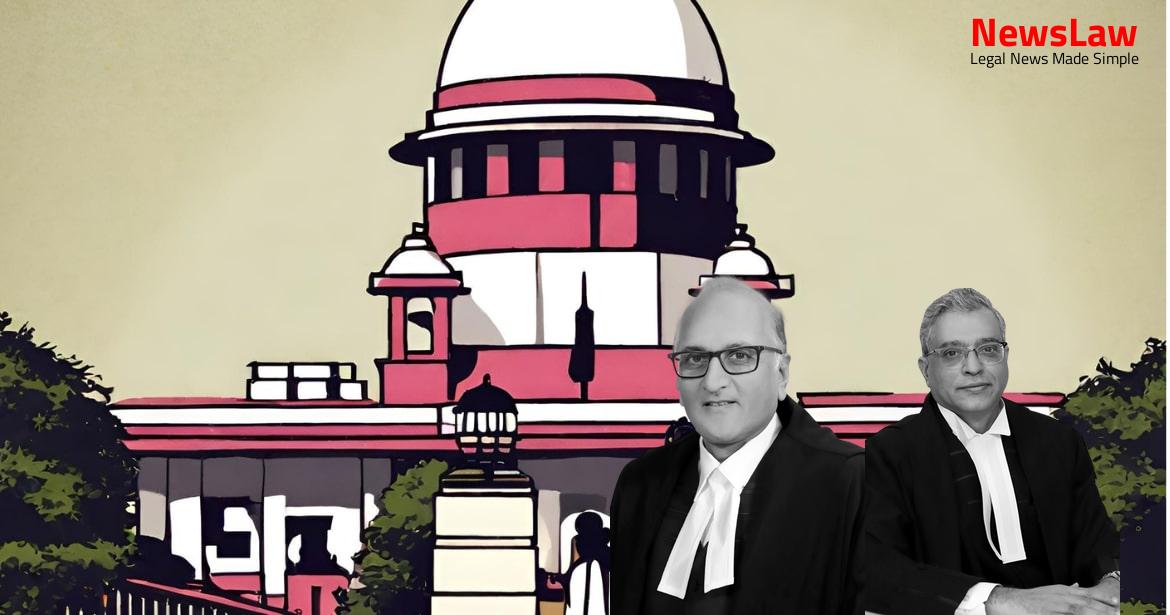In a significant legal battle, the Supreme Court of India has resolved the Lease Deed Dispute between the Landlord and Tenant. The case delves into the validity and impact of lease deeds dated 2013 and 2015, determining the rights of the parties involved. This judgment sets a precedent for future lease disputes and serves as a crucial milestone in property law.
Facts
- The landlord filed a petition claiming rent for the period 01.11.2015 to 31.01.2017.
- The tenant argued that there was a subsequent registered lease deed dated 01.09.2015 with reduced rent from 01.03.2015.
- Claimed rent by landlord was Rs.18,43,900/- per month based on the lease deed dated 01.01.2013.
- Tenant claimed rent was @ Rs.7,50,000/- per month as per the lease deed dated 01.09.2015.
- Clause 1(c) of the lease deed dated 01.09.2015 allowed the tenant to spend Rs.9 crores on infrastructure development in the premises and adjust it against the rent.
- Rent Controller provisionally determined rent at Rs.7,50,000/- per month.
- Punjab and Haryana High Court upheld the Rent Controller’s order.
- Rent Controller fixed provisional rent at Rs.7.50 lakhs per month.
- High Court upheld the Rent Controller’s decision based on earlier orders.
Also Read: Case of Eligibility for Disability Pension: Air Force Officer’s Retirement
Issue
- The first issue is whether the lease deed of 2013 or the lease deed of 2015 will govern the rights of the parties.
- The second issue is whether Shri Ajay Sharma was a trustee and entitled to execute the lease deed of 2015.
- The third issue would be that even if the lease deed of 2015 governs the rights of the parties, what amount has been spent by the appellant.
Also Read: Parayil Sasi Murder Case: Supreme Court Restores Trial Court’s Judgment
Arguments
- The tenant made submissions regarding the relationship between the parties, which were not elaborated on in the order.
- It was mentioned that material showing the amount spent on developing infrastructure was provided in the current petition, unlike in the earlier one.
- The current order is being challenged.
- The appellant’s counsel argued that as per Clause 1(c), the tenant has already paid over Rs. 3 crores, and if the entire amount is paid, there would be no way to recover it if it is decided that the tenant can adjust rent against the amount spent.
- Mr. Bhushan argues that the lease deed of 2013 should be considered and not ignored.
- Mr. Singh argues that Ajay Sharma’s removal is incorrect and he has the authority to execute the sale deed.
- It is mentioned that the second lease deed was signed by Ajay Sharma on behalf of the Trust.
- Mr. Singh claims that even if rent of Rs.7.50 lakhs needs to be paid, the Trust should not be deprived of it.
- Ajay Sharma, who signed the 2013 lease deed, was removed as a Trustee before the 2015 lease deed was executed.
Also Read: The State v. Harinder Singh: Landmark Judgment Upholding Conviction
Analysis
- Clause 1(c) of the registered lease deed from 2015 states that the Lessor provided the premises to the Lessee on a bareshell basis.
- The Lessee agreed to undertake all internal work in the Demised Premises to bring it up to the standard of an International Class IT Office.
- This work includes furnitures and fixtures, air conditioning, lighting, flooring, false ceiling, bathroom, etc.
- The lease deed of 2013 relied upon by the landlord is unregistered
- The lease deed’s validity is in question as it may not be properly stamped
- At this stage, the lease deed is inadmissible in evidence
- Appellant did not provide evidence of spending any amount in first petition.
- Some material has been presented in this petition as evidence.
- Contentious issues cannot be resolved at this stage.
- Evidence needs to be presented by both parties to prove their respective cases.
Decision
- Tenant to pay rent @ Rs.3.75 lakhs per month starting from 01.11.2015.
- Tenant to deposit rent @ Rs.3.75 lakhs per month from 01.11.2015 till 30.11.2019.
- Tenant to provide tangible surety of Rs.3 crores to the Rent Controller.
- Rent Controller to expedite the proceedings and dispose of the case within 6 months.
- Lessee to bear the cost of approximately 9 Crores for the proceedings.
- Lessee to adjust the cost from the rent due to Lessor until the entire amount is paid.
- Lessee not liable to pay any rent to Lessor until the entire amount of approximately 9 Crores is recovered.
Case Title: M/S ESPIRE INFOLABS PVT LTD Vs. SADHANA FOUNDATION
Case Number: C.A. No.-009265-009265 / 2019



